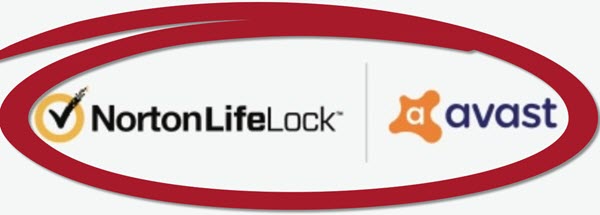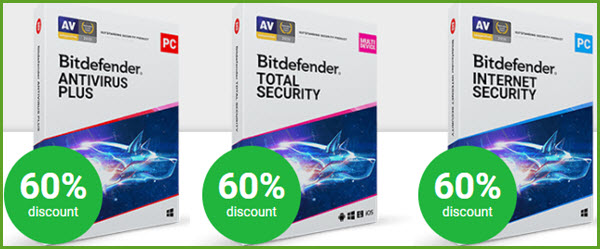If you haven’t heard the news, Norton has recently acquired Avast for a whopping $8 billion.
There is little doubt that the third-party antivirus landscape is rapidly changing and Norton’s recent acquisition of Avast only adds fuel to the fire. In recent times Avast acquired AVG, Norton acquired Avira, and now Norton has also swallowed up Avast along with AVG. So, those four separate antivirus providers have now become one, all under the Norton umbrella.
Factor in Microsoft Defender’s burgeoning popularity and it makes one wonder what the future holds for third-party antivirus products for home users. Microsoft’s original built-in free antivirus, known as Microsoft Security Essentials, with its poor detection rates and limited protection, was generally regarded as a bit of a joke. However, after a couple of name changes and much development, Microsoft Defender (as it is now known) is now generally accepted as at least on par with premium antivirus solutions, and official lab tests tend to back up that opinion. Not only does Microsoft Defender match any antivirus in terms of detection rates but its protection abilities have also been expanded to the point where the question must be asked… do home users really need to pay for a third-party antivirus solution these days?
Third-Party Antivirus Discounts
What prompted my train of thought here was when I recently came across an amazing deal for Avira Pro. The deal consists of a 97% discount for a 1-year/1 PC subscription which amounts to a tiny 70 cents US (or 95 cents AU). Of course, this is bait to hook home users into purchasing Avira Pro in the hope that they’ll automatically renew at full price for the following year or two — but is it also indicative of a somewhat alarming decrease in sales to home users?
As a follow up I checked online to see what discounts might be on offer from other antivirus vendors and came across a deal from Bitdefender offering a 60% discount across its range of antivirus products, Kaspersky is offering a 50% discount deal for a 1-year/1 PC subscription, and Panda is offering a 35% discount across its range of antivirus products. Whether or not this smacks of desperation due to Microsoft Defender’s influence and a lack of paying customers is open to conjecture but it certainly could be a factor.
Of course, mega security companies such as Norton have many irons in the fire, including dominance in enterprise deployments, and do not rely so heavily on home user subscriptions for revenue, but it makes you wonder in which direction this is all heading. Does Norton gobbling up its competition mean we are looking at a burgeoning monopoly? Can the smaller antivirus vendors survive against the might of Norton plus Microsoft Defender’s negative impact on sales?
Are There More Effective Alternatives?
Antivirus software has been around for a long time and is still essentially relying on a somewhat dated and largely reactive system. While technology, in general, has advanced with time, protection against malware for home users is one area that has seemingly made little headway, and I find it difficult to comprehend why there are not more effective alternatives by now. I often wonder why a security giant, such as Norton, has not yet designed a fully-fledged isolation system, such as sandboxing and/or a virtual environment. The technology is well known, although as yet only implemented on a minor scale, yet provides the absolute optimum in terms of protection. Even when the user inadvertently invites malware in, no possible harm can be done.
Anyway, these are merely my own ramblings, but it also got me to thinking… just how many users these days have given up on premium third-party antivirus solutions and are relying solely on Microsoft Defender.
Are you still paying for a third-party antivirus?
—




I have a lifetime license for MalwareBytes, had that since 2014 which I got cheap, but never used it with Win 10 or 11 as Defender suits me just fine. I say never used it with 10 and 11 but I have installed it to see if the license is still good and it is.
Hey Alan,
“Defender suits me just fine”
I reckon there will be many more users these days with a very similar point of view. Thanks for your comment mate, appreciated.
Jim, I have and continue to be a KIS user. Love of features might explain why I enjoy using this package. Only downside being it was able to coexist with Malwarebytes Pro, but both companies parted ways and Malwarebytes Pro became very expensive, Mindblower!
Hey MB,
Yes, you’ve been a long time Kaspersky user mate. I have absolutely no problem sticking with the devil you know. We all do it, including yours truly. 🙂
Kaspersky seems to be a good choice with good features but like others, the whole debate about Russian Government possible involvement has always put me off.
I use Eset myself. It has always been reliable and been good system resource wise.
I have used McAfee, Norton, Avast, Bit Defender, and Panda in the past but ever since Windows 10 came out, I have been using Microsoft Defender with the free version of Malwarebytes as a back up on demand scanner. It’s more than sufficient for home users.
Hey Donald,
Thanks for your comment, appreciated. I agree with your assessment, by the way.
I’ve tested several anti-virus software’s over a decade ago when I was told that I needed it. They only slowed my computer down. I uninstalled them right away. I haven’t used antivirus software since. I believe if you stay off the wrong sites and don’t nilly willy click links, you’re all good. This has always been my advice. And I’ve had zero incidences. I’m sure those cringing right now are glad to know that I’m being “protected” by Defender 🙂
Ditto. The best security is what’s between the ears. 🙂
I’ve been using Bitdefender for about ten years. I chose Bitdefender over other brands I’ve used (Norton, Kaspersky, McAfee, Trend Micro, AVG, and others whose names presently escape my memory) for several reasons: (1) Top-notch effectiveness ratings in multiple online testing results; (2) Large subscription discount offers I received via email; and (3) It now comes with a 5-PC license.
Bitdefender Total Security, which I use, not only includes antivirus and firewall protection, but also ransomware remediation, email antispam, anti-tracker (blocks web trackers), and several other privacy and optimization tools. Free security offerings, including Microsoft’s Windows Defender, typically only offer antivirus and firewall protection, and their online test rating scores are lower than Bitdefender’s.
“Microsoft’s Windows Defender, typically only offer antivirus and firewall protection, and their online test rating scores are lower than Bitdefender’s.”
Hey Elliott,
Not much of that is correct. Defender also includes PUP protection, ransomware protection, network protection, protection against phishing sites, and hardware security.
Also, in the latest lab test results (August) from the highly respected AV-Test, Bitdefender’s and Microsoft Defender’s scores were identical: https://www.av-test.org/en/antivirus/home-windows/windows-10/august-2021/
That said, whatever works…
After unsatisfactory performance and/or customer service from AVG, McAfee, Norton, Avast, and Kaspersky I bought a PC Matic lifetime subscription for 5 devices for $150. The software uses a whitelist which protects against new same day attacks and includes some clean-up tools to monitor and enhance computer performance. It has recorded very few false positives in its detection. It is compatible with machines using systems as old as Windows XP. If I stop using a device I can drop it from the list of protected devices and add another one at no additional cost. I have used it for a year with no problems.
I use the “old veteran” Checkpoint/Zone Alarm and find that it is an excellent all-round free anti-virus/ firewall/ransom ware protector.